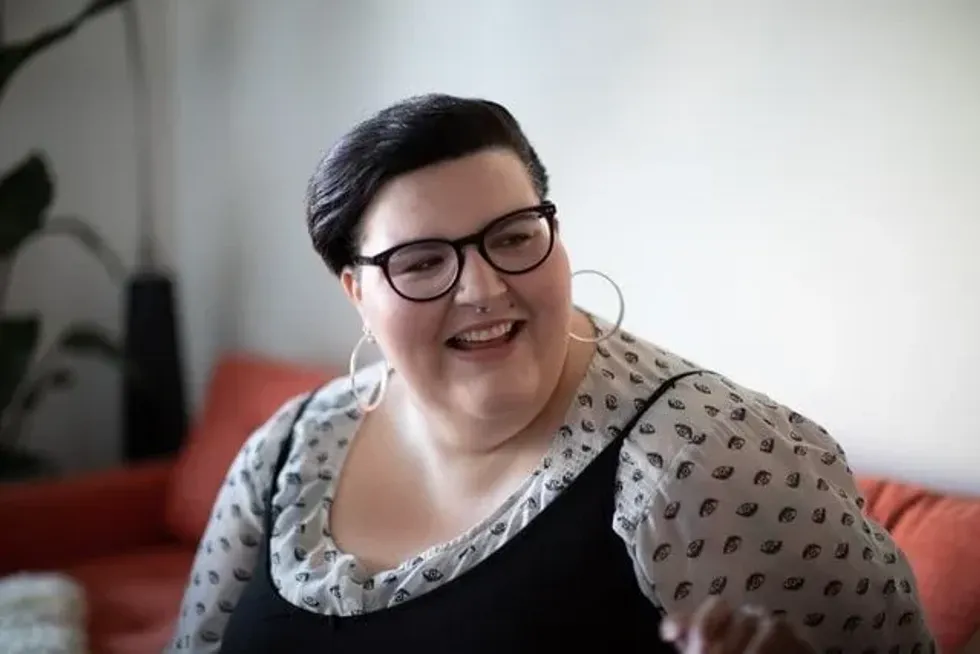Here at Kidadl we know that, alongside all of the joy and excitement, pregnancy can also bring its fair share of challenges.
From being worried about having no morning sickness to developing an ovarian cyst during pregnancy, health concerns can often keep expectant mothers up at night.
And if you're plus size and pregnant, those worries are often even bigger. Will I struggle to get pregnant? Will care providers tell me I'm too high risk? Will other parents judge my size? As a plus size woman, you're sure to have questions that the usual pregnancy resources just don't cover.
So Kidadl is here to help. From diet and exercise to weight gain and health risks, we've covered all the key topics to answer your biggest questions around being plus size and pregnant.
Getting Pregnant
There is some research to suggest that overweight women may find it more difficult to get pregnant. This is because fat cells tend to produce higher estrogen levels, which can upset your body's hormonal balance. Increased estrogen and decreased progesterone can impact your ovulation and menstrual cycles, which can make it harder to conceive.
But it's important to remember: this is a risk, not a definite. Plenty of plus size women get pregnant with no problems at all and enjoy healthy pregnancies and healthy babies.
If you are concerned that your size or weight is hampering your chances of getting pregnant, you can contact a medical professional for advice, and lean on your partner, friends, and family for support. Making small swaps and mindful choices each day can help you approach weight loss in a sustainable and healthy way.
Health Risks
There are proven links between being of a higher weight and certain health complications during pregnancy.
The most common health risk that your doctor is likely to raise with you is gestational diabetes. Gestational diabetes is a condition that occurs when your body is unable to produce enough insulin, the hormone that controls your blood sugar, resulting in high blood sugar levels.
Although this type of diabetes is common, and most women go on to have normal pregnancies and healthy babies, there are some potential risks you need to consider.
The likelihood of needing medical intervention during labor and delivery, either through induction or tools such as forceps, or the need for a Cesarean section, is increased by gestational diabetes because the condition often results in a larger baby, that might need more help to get out!
Other risks, such as developing too much amniotic fluid, premature birth, or developing pre-eclampsia (dangerous high blood pressure during pregnancy) are less common but are still a possible outcome of this type of diabetes. Because of this, plus size women are usually tested twice: early in the first trimester and later in the second.
However, gestational diabetes can be managed through diet and/or medication and usually disappears after your baby is born.
Baby Bump
Did you know that a woman's shape and size can affect the size and position of her baby bump, and even when it 'pops'?
Having a pear-shaped body sometimes means you could show as much as four weeks earlier than someone with an apple body shape. Overweight moms may not show until later in their pregnancy, in fact, they might not show at all!
You might also find that your bump looks different to the 'D' shape bump we're used to seeing in the media. With a plus size pregnancy, you might have more of a 'B' shape belly; a bump that goes out, in a little, and out again, almost as if it has a 'waistband' around the middle.
It's all down to weight distribution and differences in body type. But don't worry, whatever shape your bump and how soon, or indeed late, you show, is no indication of you or your baby's health. If you need extra support, you can buy a plus size pregnancy belly band to help.
Baby Size
Your belly is also how your health care provider will measure the growth of your baby as your pregnancy progresses. Using their fingers, they will estimate the distance from the pubic bone to the top of the uterus, otherwise known as the fundal height.
From the second trimester, around week 24, the normal medical assumption is that your baby's fundal height in centimeters will roughly match the number of weeks pregnant you are.
For example, 26 centimeters will reflect being 26 weeks pregnant. However, this is often different for plus size people who had a bit more weight in that area to begin with.
This means that your baby is likely to always measure 'ahead', so your baby might measure at 30 weeks despite you only being 26 weeks along. Although it's pretty confusing, it doesn't mean you're further ahead in your pregnancy than you thought.
It just means you had a different starting point, with an extra centimeter or two, and the language used around fundal height measurements doesn't take this into account.
Weight Gain
Plus size women are usually advised to manage their weight gain (if possible!) during pregnancy and gain less weight than a standard weight woman. This is to help minimize any weight-related health complications. So if you're overweight, your OG-GYN is likely to advise you only gain around 20 lb (9 kg)during the course of your pregnancy.
But, as at any stage of life, weight gain is not something you should focus on. Obsession around body weight can lead to disordered eating, which is very damaging to both mental and physical health. Your focus should always be on optimal health, not body weight.
Nutrition

Obviously, healthy eating is something we should try to think about all of the time but, if you are plus size and trying to manage weight gain during pregnancy, considerations around diet are probably high on your priority list.
A balanced diet is key. Try to eat fresh and natural foods and limit junk food, but remember that you shouldn't be controlling the pounds by strictly limiting your intake; more, you should be focusing on nutrition and getting the right balance of carbs, fats, and protein.
There are lots of great resources online to help you figure out the best foods to eat when, like kale, bananas, and lean meats in your first trimester and fruit, dairy, and fish in your third trimester.
But don't forget to speak to your healthcare provider if you're struggling, they can help you with meal plans, suggest any vitamins or supplements you might need, and point you in the direction of any extra resources or information that might help.
And as well as a healthy diet, don't forget to drink plenty of water. Plus size pregnant women need more hydration than other pregnant moms.
Exercise
Plus size moms can enjoy gentle exercise, under the supervision of their doctor, just like any other pregnant woman! Swimming is a perfect choice, as the water can help support any extra weight, soothe aches and pains and increase mobility.
Pregnancy yoga is also a great option for plus size women to aid flexibility, stamina, and energy levels during labor.
If you are struggling with getting moving, gentle stretching and nature walks are a good place to start.
Stigma
Unfortunately, there are still a lot of misconceptions out there about having a plus size pregnancy. You may encounter some negativity from other parents-to-be or even outdated advice from some medical professionals.
As hard as it might be, try not to take negativity to heart. Instead, take control of your own health and pregnancy. Research having a healthy plus size pregnancy, know your facts, understand your options and remind yourself that your worth as a mom isn't based on the size of your body.
Mental Health
Worries about whether you and your baby's health are at risk; judgments about your size; concerns around diet and exercise; fears about how a larger baby might impact delivery, as a plus size mom, you might find yourself with a lot of extra anxieties swirling around your, already exhausted, mind.
And this can leave you vulnerable to mental health struggles.
It's so important to talk about how you're feeling, either with friends and family or with your care provider. A healthy pregnancy isn't just about the physical side, and you need to be just as mindful of your mental health.
Lifestyle
Don't let being plus size stop you from having a super stylish pregnancy! These days there are so many amazing options, especially online, for comfortable maternity jeans or gorgeous plus size pregnancy dresses.
And if you're looking for inspiration and words of wisdom, whether that's on style or any other element of being plus size and pregnant, there are some amazing women you can follow online.
There are lots of bloggers and Instagrammers out there, who are giving the lowdown on plus size pregnancy week by week, to birth, through to caring for your newborn and creating supportive and welcoming communities.
And as well as the top tips, it's also really great for your mental health to see other overweight women going through the same experiences you are. You are definitely not the only one!
In fact, you're in pretty fabulous company, famous plus sized models Ashley Graham and Tess Holliday are two moms who are putting out some truly inspirational and relatable content.
If you found this article helpful, then why not take a look at can pregnant women drink wine or can you eat goat's cheese when pregnant?










